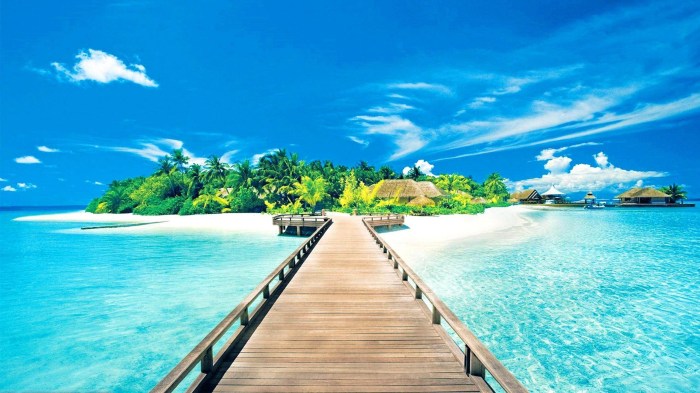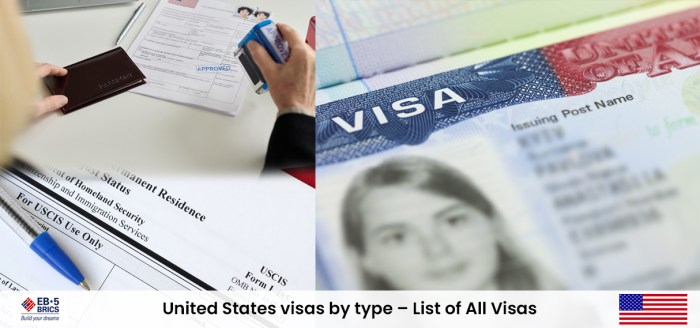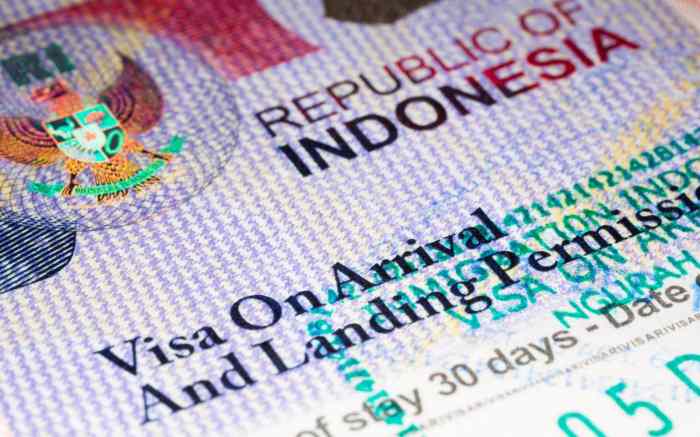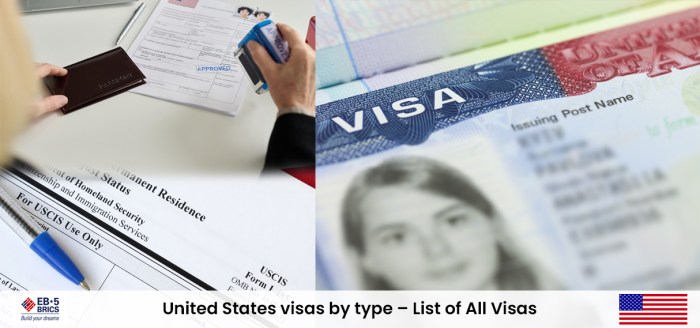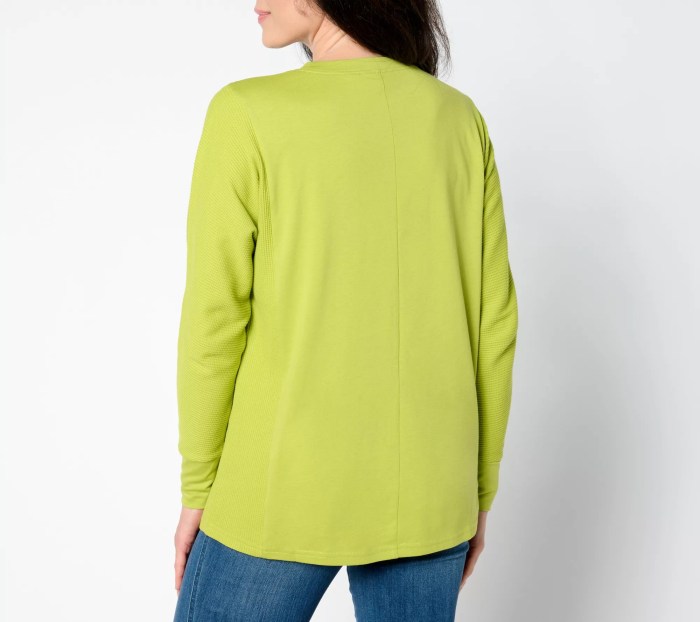Trip ideas island vacations maldives offer a spectrum of experiences, from luxurious overwater bungalows to intimate stays on smaller, local islands. Discover the pristine beaches, vibrant coral reefs, and unique cultural immersion that awaits you in the Maldives. This guide delves into the details, providing a comprehensive overview of activities, accommodations, and essential planning tips to create the perfect Maldivian getaway.
From snorkeling and diving adventures to cultural explorations and delectable culinary experiences, the Maldives caters to a wide range of interests. The unique charm of the islands, combined with a variety of accommodation options, ensures there’s a perfect fit for every traveler. Understanding the different types of islands and their corresponding amenities and price ranges is crucial for choosing the right experience.
Introduction to Island Vacations in the Maldives: Trip Ideas Island Vacations Maldives
The Maldives, a string of 26 atolls scattered across the Indian Ocean, is a renowned tropical paradise. Known for its breathtaking turquoise waters, pristine white-sand beaches, and abundant marine life, it’s a dream destination for travelers seeking an unforgettable island escape. The unique geography and natural beauty make it a haven for both luxury seekers and those seeking a more authentic experience.The Maldives offers a diverse range of experiences, from opulent overwater bungalows to intimate stays on local islands.
The country’s rich culture and warm hospitality add another layer of charm to this captivating destination. This detailed look will delve into the different types of islands available, their amenities, and activities offered, ensuring you can choose the perfect island getaway for your needs and budget.
Types of Islands in the Maldives
The Maldives presents a spectrum of island experiences, catering to a wide range of preferences and budgets. From luxurious resorts offering world-class amenities to smaller, local islands offering a more intimate and cultural immersion, there’s an island type for everyone.
Dreaming of island vacations in the Maldives? Packing light is key for those perfect beach getaways, and comfy shoes are essential. For exploring the islands and navigating those sandy shores, consider a stylish pair of slip-ons. Finding the best slip-on shoes for your trip can make all the difference in comfort and style. Check out some great options at style shoes best slip on.
Whether you’re lounging on the beach or exploring the local markets, the right footwear will elevate your Maldives experience. Ultimately, a relaxing island vacation requires the perfect mix of comfort and style, and the right shoes are part of that equation.
- Luxury Resorts: These islands typically feature extensive facilities, including multiple dining options, luxurious accommodations, a range of water sports activities, and highly personalized service. Examples include the Four Seasons Landaa Giraavaru, offering overwater bungalows and exceptional dining experiences. They cater to discerning travelers seeking ultimate relaxation and high-end comfort.
- Smaller Local Islands: These islands often provide a more authentic Maldivian experience, with closer interactions with the local community and a more laid-back atmosphere. They typically have fewer amenities compared to luxury resorts, but offer a more affordable alternative for those looking for a less structured vacation. For example, some islands offer basic accommodation, local cuisine, and opportunities for snorkeling or diving in the nearby reefs.
Island Comparison
The following table highlights key differences between luxury resorts and smaller local islands, encompassing size, amenities, and price ranges.
| Island Type | Size | Amenities | Price Range (USD per night) |
|---|---|---|---|
| Luxury Resort | Typically larger, with extensive grounds and multiple villas | High-end accommodations, multiple dining options, water sports, spa facilities, private pools, multiple restaurants, extensive concierge services | $500 – $10,000+ |
| Smaller Local Island | Generally smaller, with fewer facilities | Basic accommodations, local restaurants, opportunities for snorkeling and diving, interaction with local communities | $100 – $500 |
Common Activities and Experiences
The Maldives is renowned for its pristine beaches, crystal-clear waters, and vibrant marine life. Activities abound, catering to a variety of interests.
- Water Sports: Snorkeling, diving, windsurfing, and various water sports activities are immensely popular. The vibrant coral reefs and abundant marine life make the Maldives a paradise for underwater enthusiasts.
- Relaxation: Beach lounging, spa treatments, and simply unwinding in the tranquil environment are highly valued experiences. The serene ambiance is designed for total relaxation.
- Cultural Experiences: Visiting local islands and interacting with the local community provide insights into Maldivian culture and traditions. This offers opportunities for authentic cultural immersion and interaction.
Activities and Experiences
Beyond the breathtaking beauty of the Maldives, a plethora of activities and experiences await, catering to diverse interests and preferences. From thrilling water sports to serene relaxation, and from exploring vibrant coral reefs to savoring local delicacies, the islands offer a unique blend of adventure and tranquility. Immerse yourself in the culture and natural wonders of this tropical paradise.The Maldives offers a diverse range of experiences tailored to suit every traveler’s needs, whether you’re seeking thrilling adventures or peaceful escapes.
The islands provide a remarkable opportunity to connect with nature, indulge in exquisite cuisine, and immerse yourself in the local culture. The options range from adrenaline-pumping water sports to rejuvenating wellness retreats, ensuring an unforgettable vacation.
Snorkeling and Diving
The crystal-clear waters of the Maldives are teeming with marine life, making snorkeling and diving unparalleled experiences. Vibrant coral reefs house a kaleidoscope of colorful fish, intricate coral formations, and fascinating marine creatures. Experienced divers can explore deeper reefs and encounter a greater diversity of marine life. Snorkeling is accessible to all levels, offering a chance to marvel at the underwater world without the need for extensive training.
Water Sports
From exhilarating jet skiing and parasailing to the serene calmness of a sunset cruise, the Maldives offers a wide array of water sports. Jet skiing provides an adrenaline rush as you navigate through the turquoise waters, while parasailing allows for breathtaking aerial views of the islands. Other water sports include paddleboarding, kayaking, and windsurfing, allowing visitors to interact with the surrounding waters in a more intimate and engaging way.
Cultural Experiences
The Maldives’ unique blend of Indian and Sri Lankan influences is evident in its culture. Visiting local villages and engaging with the friendly islanders provides an opportunity to experience Maldivian hospitality and traditions firsthand. This includes attending local events, such as traditional Maldivian music and dance performances, or participating in cultural tours. This allows tourists to experience the rich heritage and customs of the islands, offering a deeper understanding of the culture.
Culinary Scene and Local Cuisine
Maldivian cuisine is a delicious fusion of influences, reflecting its location between the Indian and Asian continents. Fresh seafood is a cornerstone, often prepared in simple, yet flavorful, ways. Expect a variety of grilled fish, curries, and rice dishes. Visitors can also explore local markets to sample fresh fruits and vegetables, or savor traditional Maldivian snacks. This exploration of the local cuisine adds another layer of richness to the overall experience.
Relaxation and Wellness
The Maldives is renowned for its tranquil ambiance and luxurious resorts, providing ideal settings for relaxation and wellness. Many resorts offer a wide range of spa treatments, including traditional Maldivian therapies, and meditation sessions, providing a sanctuary for rejuvenation and self-discovery. Indulge in a holistic wellness experience that promotes physical and mental well-being.
Activities for Different Travelers
The Maldives offers activities suitable for families, couples, and solo travelers alike. Families can enjoy kid-friendly excursions, such as boat trips and beach time. Couples can opt for romantic dinners on the beach or secluded overwater bungalows, savoring the intimacy and tranquility of the islands. Solo travelers can enjoy independent exploration, visiting local markets or embarking on solo snorkeling expeditions, experiencing the islands at their own pace.
Excursions and Tours
| Excursion/Tour | Duration | Price (approx.) | Suitable Groups |
|---|---|---|---|
| Snorkeling Trip to a Local Reef | Half-day | $50-$100 | Families, couples, solo travelers |
| Sunset Cruise with Dinner | Full-day | $150-$300 | Couples, families |
| Dhivehi Cultural Village Tour | Half-day | $30-$60 | Families, couples, groups |
| Fishing Trip | Full-day | $100-$200 | Couples, families, groups |
| Diving Excursion (Beginner Level) | Full-day | $150-$250 | Couples, families, groups |
Note: Prices are approximate and may vary based on the season and the chosen resort. All prices are in USD.
Accommodation Options
Choosing your accommodation in the Maldives is a crucial part of the experience, as it directly impacts your comfort and immersion in the island’s beauty. The spectrum of options ranges from luxurious overwater bungalows to more budget-friendly guesthouses, each offering a unique island experience. Understanding the different types and amenities will help you select the perfect fit for your needs and budget.The Maldives offers a wide array of accommodation styles, catering to every taste and budget.
From the opulence of a private overwater bungalow to the laid-back charm of a traditional guesthouse, each choice reflects a distinct aspect of Maldivian hospitality. This variety ensures that every traveler can find an accommodation that matches their personal preferences and financial constraints.
Types of Accommodation
The Maldives offers a diverse range of accommodation types, from the iconic overwater bungalows to cozy beachfront rooms. This variety allows travelers to choose an experience tailored to their needs and budget.
- Overwater Bungalows: These are often the epitome of luxury in the Maldives, offering unparalleled views of the turquoise waters and abundant marine life. They typically feature private plunge pools, spacious living areas, and lavish bathrooms. These bungalows are usually situated directly over the ocean, creating a truly immersive experience. Examples include villas with private pools and dining areas on the deck, often with direct access to the coral reefs, allowing for exceptional snorkeling and diving opportunities.
- Beach Villas/Bungalows: These are located directly on the beach, providing easy access to the sand and water. Amenities may vary, ranging from basic rooms to spacious villas with private pools and dining areas. The beach villas offer a more intimate connection with the island environment and the gentle sounds of the waves.
- Luxury Resorts: These resorts often encompass multiple buildings, offering a wide range of amenities and activities, including restaurants, spas, water sports facilities, and multiple pools. Resorts often cater to families or larger groups, offering a more communal experience, often including multiple dining options and shared activities.
- Guesthouses: These smaller establishments provide a more intimate and local experience. They often feature simpler rooms and amenities but offer a more authentic taste of Maldivian culture and hospitality. They are often more budget-friendly, with simpler facilities but still maintaining a welcoming environment.
Amenities and Services
The level of amenities and services offered varies significantly across different accommodation types. This variation directly impacts the overall experience and value for money.
- Overwater Bungalows: Typically include high-end amenities such as private plunge pools, personalized butler service, gourmet dining options, and spa treatments. These bungalows are often equipped with state-of-the-art entertainment systems and sophisticated technology for comfort.
- Beach Villas/Bungalows: Amenities might include private pools, sun decks, direct beach access, and well-equipped bathrooms. The range of services may encompass housekeeping, dining arrangements, and water sports rentals.
- Luxury Resorts: A wide spectrum of services, from personalized concierge services to multiple dining options, water sports facilities, kids’ clubs, and extensive spa services, is typical. Many resorts also offer a range of activities, such as excursions and guided tours.
- Guesthouses: Basic amenities like air conditioning, private bathrooms, and a comfortable bed are standard. Some guesthouses might offer simple dining options or a shared kitchen, providing a more local feel. The services may focus on simple and straightforward support.
Factors Influencing Accommodation Choice
Several factors influence the selection of the perfect accommodation in the Maldives. Careful consideration of these elements will lead to a vacation that aligns with personal preferences and financial limitations.
- Budget: The price range for accommodation in the Maldives varies widely, from budget-friendly guesthouses to extravagant overwater bungalows. Consider your financial limitations to narrow down the options.
- Group Size: The number of people traveling significantly impacts the choice. Consider the size of your group when evaluating the space and amenities offered in different accommodation types.
- Desired Level of Luxury: The level of luxury is a key determinant. Overwater bungalows and luxury resorts cater to those seeking a high level of comfort and personalized service. Budget-friendly guesthouses cater to travelers who prioritize value and authentic experiences.
Accommodation Comparison Table
This table provides a concise overview of different accommodation categories, highlighting price, amenities, and location.
| Accommodation Category | Price Range (Approximate) | Amenities | Typical Location |
|---|---|---|---|
| Overwater Bungalow | High | Private plunge pool, butler service, gourmet dining | Over the ocean |
| Beach Villa/Bungalow | Mid-range to High | Private pool, beach access, well-equipped bathrooms | Directly on the beach |
| Luxury Resort | High | Multiple dining options, water sports, spa, kids’ club | Island or lagoon location |
| Guesthouse | Low to Mid-range | Basic amenities, shared facilities | Island location |
Planning and Booking a Trip
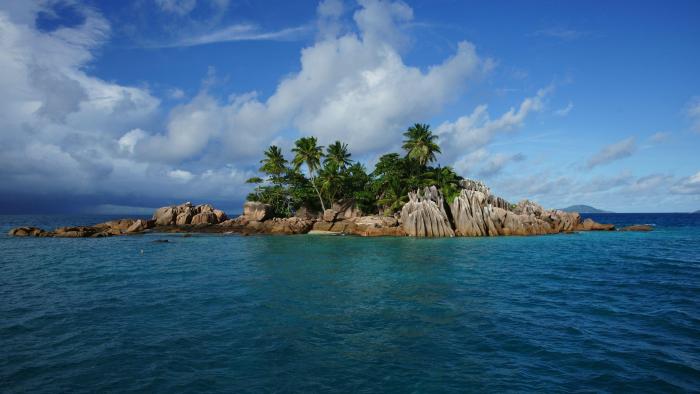
Embarking on a Maldivian island getaway requires meticulous planning. This crucial stage involves understanding travel logistics, securing necessary documents, and making informed choices about accommodations and flights. Thorough preparation ensures a smooth and enjoyable trip, allowing you to fully immerse yourself in the beauty of the Maldives.
Travel Logistics and Documentation
The Maldives is a captivating destination, but careful attention to travel logistics is essential. This includes understanding visa requirements, flight options, and accommodation details. Proper documentation ensures a hassle-free journey.
- Visa Requirements: Citizens of many countries can enter the Maldives visa-free for a certain duration. However, it’s crucial to check the specific visa policy for your nationality well in advance. This ensures you are prepared and avoid any unforeseen issues at the airport. For example, US citizens can typically stay visa-free for 30 days. Consult the official Maldives immigration website for the most current information.
- Passport Validity: Ensure your passport is valid for at least six months beyond your intended stay. This is a common requirement for most international travel and will prevent any delays at the airport.
- Health Requirements: Review any necessary vaccinations or health precautions for travel to the Maldives. This may vary based on your origin country. It’s essential to stay healthy and safe while enjoying your vacation.
Essential Travel Information
Knowing the essential details about your destination, such as local customs and currency, will enrich your experience.
- Currency Exchange: The Maldivian Rufiyaa (MVR) is the local currency, but US dollars are widely accepted in tourist areas. It’s wise to exchange some currency beforehand and have some small bills for tips and smaller purchases.
- Local Customs: Respecting local customs and traditions is essential when visiting any new place. Dress modestly when visiting religious sites, and be mindful of local traditions. Researching the local culture beforehand can significantly enhance your travel experience.
- Emergency Contacts: Keep a list of emergency contacts, including embassy information, readily available during your trip. Knowing how to reach out to the relevant authorities in case of an emergency is critical.
Booking Flights and Accommodations
Selecting flights and accommodations is a significant part of planning. Consider various factors, such as budget and preferred travel style.
- Flight Options: Research different airlines and flight options to find the best deals and schedules that suit your needs. Websites like Skyscanner or Google Flights are excellent resources for comparing flight options.
- Accommodation Booking: Pre-booking your accommodation is strongly recommended, especially during peak season. Consider your budget, desired amenities, and location to find the perfect island retreat.
Potential Travel Risks and Safety Precautions
Understanding potential risks and taking necessary precautions ensures a safe and enjoyable experience.
- Marine Activities: Be mindful of potential risks associated with marine activities, such as strong currents or unfamiliar marine life. Follow the safety guidelines provided by your resort or local guides.
- Sun Protection: The Maldives has intense sun. Use sunscreen, wear protective clothing, and stay hydrated to avoid sunburn.
- Health Precautions: Consult your doctor about any health precautions or necessary medication before your trip. Always carry necessary medication.
Best Time to Visit
The best time to visit the Maldives depends on your preferences for weather and crowd levels.
- Weather Conditions: The Maldives experiences a tropical climate with a dry season (November to April) and a wet season (May to October). November to April typically has the best weather conditions. However, the rainy season, although wet, also offers opportunities for experiences in a different climate.
- Crowd Levels: Peak season (December to March) tends to have higher crowds and higher prices. Shoulder seasons (April and October) provide a balance between pleasant weather and fewer crowds.
Step-by-Step Trip Planning Guide
A structured approach to planning will ensure a seamless and enjoyable experience.
- Research: Explore different islands and resorts based on your interests and budget. Look for reviews and compare prices.
- Booking Flights and Accommodation: Book flights and accommodations well in advance, especially during peak season. This will help you secure the best deals and preferred choices.
- Packing: Pack light clothing, swimwear, sunscreen, insect repellent, and any necessary medication. Consider the activities you plan to do and pack accordingly.
Budget Considerations
Dreaming of a luxurious Maldivian getaway? Understanding the financial aspects is key to making your dream a reality. This section delves into the cost structure of flights, accommodation, activities, and meals, offering various budget options and practical tips for saving money without compromising the quality of your experience. We’ll also Artikel typical expenses for different trip lengths, providing a clear picture of the financial commitment involved.The cost of a Maldivian island vacation varies significantly depending on your choices.
Dreaming of an island vacation in the Maldives? Packing light is key for these trips, and mastering packing cubes is a game-changer. Learning how to use them effectively is one of the best travel hacks out there, seriously maximizing your space and minimizing stress. Packing cubes best travel hacks will give you all the tips you need.
From choosing the right fabrics to organizing your clothes by category, it’s all about getting the most out of your luggage for the ultimate Maldives experience.
Luxury resorts command premium prices, while more budget-friendly options exist. Knowing how much different components of your trip will cost empowers you to craft a vacation that aligns with your financial goals.
Flight Costs
Flights to the Maldives can vary considerably depending on the origin city, booking time, and airline. Direct flights are often more expensive but offer a more convenient travel experience. Consider booking in advance for potential discounts. Travel during the shoulder seasons (spring and fall) or on weekdays may lead to lower airfare. For example, a round-trip flight from London to Malé can range from $1,000 to $2,500 per person, depending on the time of year and booking window.
Accommodation Options and Costs
Accommodation in the Maldives spans a wide range, from budget-friendly guesthouses to luxurious overwater bungalows. The price per night can vary significantly, from a few hundred dollars for a simple room to several thousand for a premium overwater bungalow. Factors such as location, amenities, and inclusions influence the cost. For example, a basic guesthouse might cost around $100-$200 per night, while a luxurious overwater bungalow could easily exceed $1,000.
Activities and Experiences
Activities and experiences in the Maldives range from snorkeling and diving excursions to sunset cruises and spa treatments. These can add significantly to the overall cost of your trip. Pre-booking certain activities, such as a diving trip, often offers better rates. For instance, a half-day snorkeling trip can cost between $50-$150 per person, while a private sunset cruise might be $300-$500.
Meals
Dining in the Maldives offers a variety of options, from casual buffets to fine-dining experiences. Breakfasts, lunches, and dinners can vary in price depending on the resort and the type of meal. Eating at local restaurants or cafes can be a budget-friendly option. For example, a buffet lunch at a resort can cost between $25-$50 per person, while a fine-dining experience can easily exceed $100.
Budget Options for Different Trip Types, Trip ideas island vacations maldives
- Luxury Trip: This option typically involves high-end accommodations, private excursions, and premium dining experiences. Expect to spend several thousand dollars per person for a week-long stay. High-end accommodations with exceptional amenities, private dining, and exclusive activities.
- Mid-Range Trip: This category focuses on a balance between comfort and affordability. It includes moderate-priced accommodations, some guided tours, and dining at both resort restaurants and local eateries. A mid-range trip might cost between $1,500 and $3,500 per person for a week.
- Budget-Friendly Trip: This trip emphasizes maximizing value for money. It may involve basic accommodations, budget-friendly meals, and self-guided excursions. A budget-friendly trip can cost between $800 and $1,500 per person for a week.
Saving Money
Traveling during the shoulder season (spring and fall) often leads to lower prices on flights and accommodations. Consider booking accommodations in advance for potential discounts. Look for packages that bundle flights, accommodations, and activities for better value. Explore budget-friendly dining options, such as local restaurants, instead of solely relying on resort dining.
Dreaming of island vacations in the Maldives? Beyond the stunning beaches and turquoise waters, there are exciting activities to experience. For instance, exploring the unique culture and attractions in Ay Champagne, like the ones detailed in ay champagne things to do , is a must-do. These experiences will enhance your overall Maldives trip and make it truly unforgettable.
Typical Expenses
| Trip Length | Estimated Expenses (per person) |
|---|---|
| 7 days | $1,500 – $5,000+ (depending on the trip type) |
| 10 days | $2,000 – $6,000+ (depending on the trip type) |
| 14 days | $2,500 – $8,000+ (depending on the trip type) |
Sample Budget Template
| Item | Estimated Cost |
|---|---|
| Flights | $1,000 |
| Accommodation (7 nights) | $1,500 |
| Activities | $500 |
| Meals | $500 |
| Miscellaneous (souvenirs, visa) | $100 |
| Total Estimated Cost | $3,600 |
Visual Appeal and Imagery
The Maldives, a string of over a thousand coral islands scattered across the Indian Ocean, is a breathtaking destination. Its allure stems not just from the turquoise waters and white-sand beaches, but also from the unique beauty of its landscapes, the vibrant marine life, and the serene atmosphere. This visual feast is a powerful draw for travelers seeking a tranquil escape and unforgettable experiences.The Maldives’ visual appeal is a potent tool in marketing and travel planning.
Vivid imagery of idyllic scenes, from sun-drenched beaches to underwater coral gardens, can spark the imagination and create a powerful desire to visit. These images, carefully curated, can influence choices and paint a picture of what a trip to the Maldives might truly entail.
Typical Scenery and Landscapes
The Maldives’ landscape is a symphony of natural beauty. Picture pristine white-sand beaches meeting turquoise waters, fringed by swaying palm trees. These idyllic scenes are repeated across the archipelago, each island a unique jewel in the chain. The islands themselves are low-lying, often no more than a few feet above sea level, giving a sense of intimacy and closeness to the surrounding ocean.
The contrast between the light sand and the deep, vibrant blue of the ocean creates a stunning visual spectacle. The natural beauty is further enhanced by the gentle breezes and the tranquility that permeates the air.
Beach Beauty
Maldivian beaches are renowned for their powdery white sand and shallow, clear waters. The gentle lapping of waves against the shore creates a soothing soundtrack to the scene. The sun-drenched sands are perfect for sunbathing, while the crystal-clear waters beckon for swimming and snorkeling. The beaches are often framed by lush greenery, providing a vibrant contrast to the brilliant blue of the ocean.
The variety of beach experiences is remarkable, from secluded stretches of sand to more bustling resorts with vibrant activity.
Coral Reefs and Marine Life
The coral reefs surrounding the Maldives are vibrant and teeming with life. Schools of colorful fish dart amongst the coral formations, creating a kaleidoscope of color. The reefs are home to a variety of marine life, including sharks, rays, and turtles. The underwater world is an astonishing sight, a spectacle of nature’s artistry. Snorkeling and diving in these areas are an unparalleled way to immerse oneself in this captivating underwater world.
The reefs are often teeming with life, creating a vibrant and diverse ecosystem.
Local Architecture and Traditions
Maldivian architecture reflects the island nation’s unique culture and history. Traditional Maldivian houses, often constructed from local materials like wood and thatch, are characterized by their simple elegance. The use of natural materials and the integration with the surrounding environment is a key element. These homes are often nestled amidst lush vegetation, enhancing the peaceful ambiance of the islands.
Local markets offer a glimpse into traditional Maldivian life, showcasing the unique crafts and artistry of the islands. The blend of the traditional with the modern creates a fascinating juxtaposition of culture and modernity.
Evocative Adjectives to Describe the Island Environment
- Serene
- Tranquil
- Idyllic
- Stunning
- Breathtaking
- Picturesque
- Azure
- Lush
- Vibrant
- Exquisite
The use of evocative adjectives can significantly enhance the imagery and sensory experience when describing the Maldives.
Role of Visuals in Enhancing Travel Experience
Visuals play a critical role in enhancing the travel experience. Images can evoke emotions, create anticipation, and help potential travelers visualize themselves in the desired environment. They can transport people to another place and instill a sense of excitement and longing. High-quality visuals are essential in creating a strong impression and motivating the decision to book a trip.
The use of vibrant imagery in travel marketing and planning is paramount.
Visual Examples
A Maldives sunset, painted across the sky with hues of orange, pink, and gold, casts a warm glow over the water and islands. The colors blend seamlessly, creating a mesmerizing display of nature’s artistry.
An overwater bungalow, perched delicately above the turquoise waters, offers a breathtaking view of the coral reefs teeming with life. The sheer beauty of the bungalow’s design, coupled with the natural splendor surrounding it, makes for a truly unforgettable sight.
A local market, filled with vibrant colors and the aroma of spices, showcases the unique crafts and artistry of the Maldivian people. The energy and activity of the market create a lively atmosphere that reflects the local culture.
Alternative Island Experiences
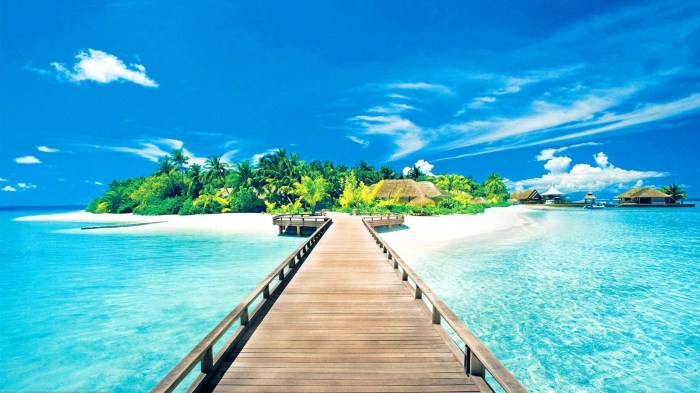
Beyond the bustling resorts and well-trodden paths, the Maldives offers a captivating array of experiences on smaller, less-visited islands. These hidden gems reveal a different side of the archipelago, allowing for a more intimate connection with the local culture and a deeper appreciation for the natural beauty of the Maldives. These islands often provide a more authentic and secluded getaway, perfect for those seeking tranquility and a truly immersive experience.
Exploring the Less-Visited Islands
These smaller islands, often less developed than their larger counterparts, offer a unique perspective on Maldivian life. They typically feature a more intimate and laid-back atmosphere, away from the crowds and commercialization often found on the popular resorts. This accessibility to local communities provides opportunities for deeper cultural immersion.
Advantages and Disadvantages of Smaller Islands
The advantages of visiting smaller, less-visited islands often outweigh the disadvantages. The tranquility and seclusion are highly sought-after, offering a unique escape from the everyday. These islands are often more affordable than the larger, resort islands, allowing for a more budget-friendly experience. However, these smaller islands may have limited amenities, and access can be more challenging, requiring inter-island ferries or seaplanes.
Additionally, the selection of dining options and activities might be more limited. Ultimately, the choice depends on the traveler’s preferences.
Local Culture and Traditions
The local culture in smaller islands is deeply rooted in Maldivian traditions. Islam plays a significant role in daily life, and the local community is often welcoming and hospitable. Visitors are encouraged to respect local customs and traditions. Interaction with the locals provides an opportunity to learn about their way of life, their history, and their values.
Unique Activities on Smaller Islands
Smaller islands often boast activities tailored to their unique environments. Fishing trips are popular, providing an opportunity to experience the local fishing culture and potentially catch fresh seafood. Visiting local markets and engaging with the community is a significant cultural experience. Swimming in the crystal-clear waters and exploring the vibrant marine life is another appealing activity.
Alternative Island Options
| Island Name | Key Attractions | Access Method |
|---|---|---|
| Felivaru | Stunning beaches, opportunities for snorkeling and diving, chance to experience a local fishing village. | Domestic flight to a nearby island followed by a speedboat transfer. |
| Maafushi | Local markets, vibrant atmosphere, opportunities for watersports. | Domestic flight or seaplane. |
| Villingili | Offers a mix of local experiences and easy access to other islands. | Domestic flight, seaplane or ferry. |
| Thulusdhoo | Historical significance, local experiences, and stunning natural beauty. | Ferry or domestic flight. |
Final Conclusion
Planning a trip to the Maldives is an exciting journey of discovery. This guide has provided a comprehensive look at the diverse range of options available, from luxurious resorts to local island stays, alongside detailed information on activities, accommodations, and essential planning steps. Whether you’re seeking a relaxing escape, an adventurous experience, or a family-friendly vacation, the Maldives has something to offer everyone.
With careful planning and consideration of your budget, you can craft a truly unforgettable experience in paradise.
